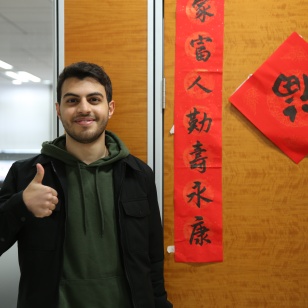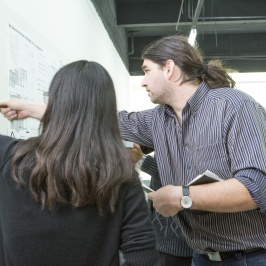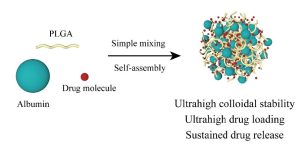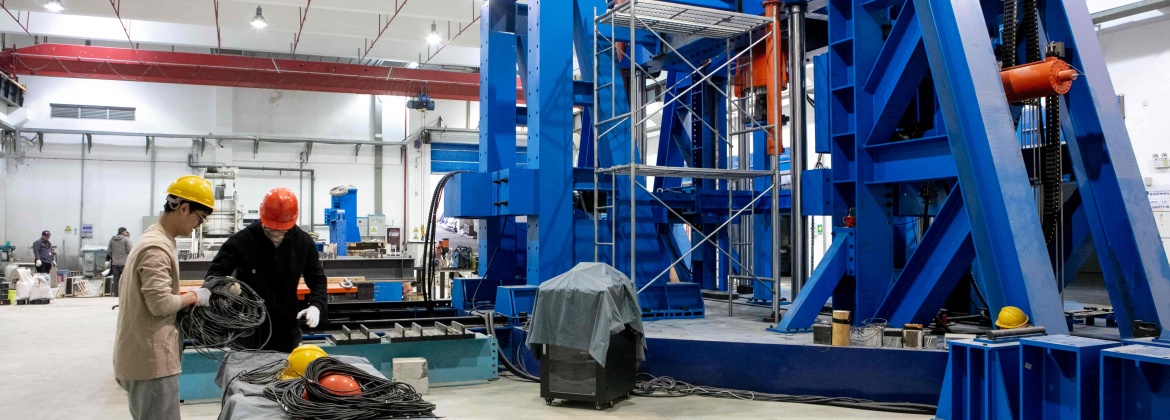September 2025
Full time
18 months
Suzhou
Design School
This programme leads to a University of Liverpool degree which is recognised by Ministry of Education, China.
Knowledge and skills
By the time you graduate from the MSc Civil Engineering programme, you will have:
- independent critical thinking skills, which are key for the development of professional engineering insight
- a solid understanding of the theoretical aspects of the recent advances in civil engineering fields
- the ability to work in complex professional environments and find innovative solutions for technical problems.
The MSc in Civil Eng. is structured in such a way to offer the professional expertise needed in the competitive industrial environment as well as the contemporary scientific knowledge based on the research interests of our Academics.

Guobin Gong
Programme director
Modules
*Programme modules listed are illustrative only and subject to change. XJTLU students are advised to log in to the e-Bridge Portal to view the effectuated module structure.
Semester 1
Semester 2
Semester 3
The university offers a broad range of activities aiming to enrich master students’ theoretical and experiential learning and professional development. Trainings, workshops and seminars, covering varieties of themes and topics, both generic and subject-specific, are often offered at both university and school/department levels. You may also be provided with opportunities to work as a teaching assistant, research assistant, or intern at XJTLU. Depending on the programme, field trips and company visits may be organized, and invited talks may be given by the industrial experts and professionals. Such activities will not only support you in your programme study, but also develop your personal and professional skills and enhance your overall employability.
I have become a more responsible engineer by learning about the importance of sustainability and putting my knowledge into use during the lab sessions. Each student is matched with an external mentor who will actively help you when it comes to career advice or securing internships.

Mohamed Adel
Student, MSc Civil Engineering
Careers
Graduates from this programme are well prepared for roles such as consultants or site managers in construction industry, as well as similar positions in government, and in water management and infrastructure facilities. Graduates can also find employment as structural engineers, geotechnical engineers, hydraulic and hydrologic engineers, quantity surveyors and quality managers. Alternatively, some graduates may wish to specialise in the areas that they are really passionate about and move on to further PhD studies.










Overview
The MSc Civil Engineering programme incorporates the contemporary key elements of engineering design in the built environment.
During the programme, you will develop a high level of knowledge and skills in the fields of structural engineering, construction management, geotechnical engineering and innovative construction materials.
The MSc Civil Engineering programme embraces research-led teaching, where the students are actively engaged by accomplishing technical tasks, either in the form of group work or individual projects.
Comprising two semesters of taught modules, this programme also includes undertaking a research dissertation during the third semester.
The programme is accredited by the Joint Board of Moderators (JBM) as meeting the requirements for Further Learning for a Chartered Engineer (CEng), for candidates who have already acquired a partial CEng accredited undergraduate first degree.
Accreditation
MSc (Technical)
This degree is accredited as meeting the requirements for Further Learning for a Chartered Engineer (CEng) for candidates who have already acquired a partial CEng accredited undergraduate first degree.
See www.jbm.org.uk for further information.
XJTLU-JITRI Joint-Supervision Pathway
This programme also offers XJTLU-JITRI joint supervision pathway which leverage the strength from both XJTLU and the research institutes and leading enterprises of Jiangsu Industrial Technology Research Institute (JITRI) to promote in-depth integration between industry, education and research. Through the unique training model integrating specialised module study, industrial research practice and dual supervision mechanism, we aim to cultivate cross-disciplinary talents who are innovative, application-oriented and with high-level international perspective.
Please click here to find more information about XJTLU-JITRI joint Master education.
Why study Civil Engineering at XJTLU?